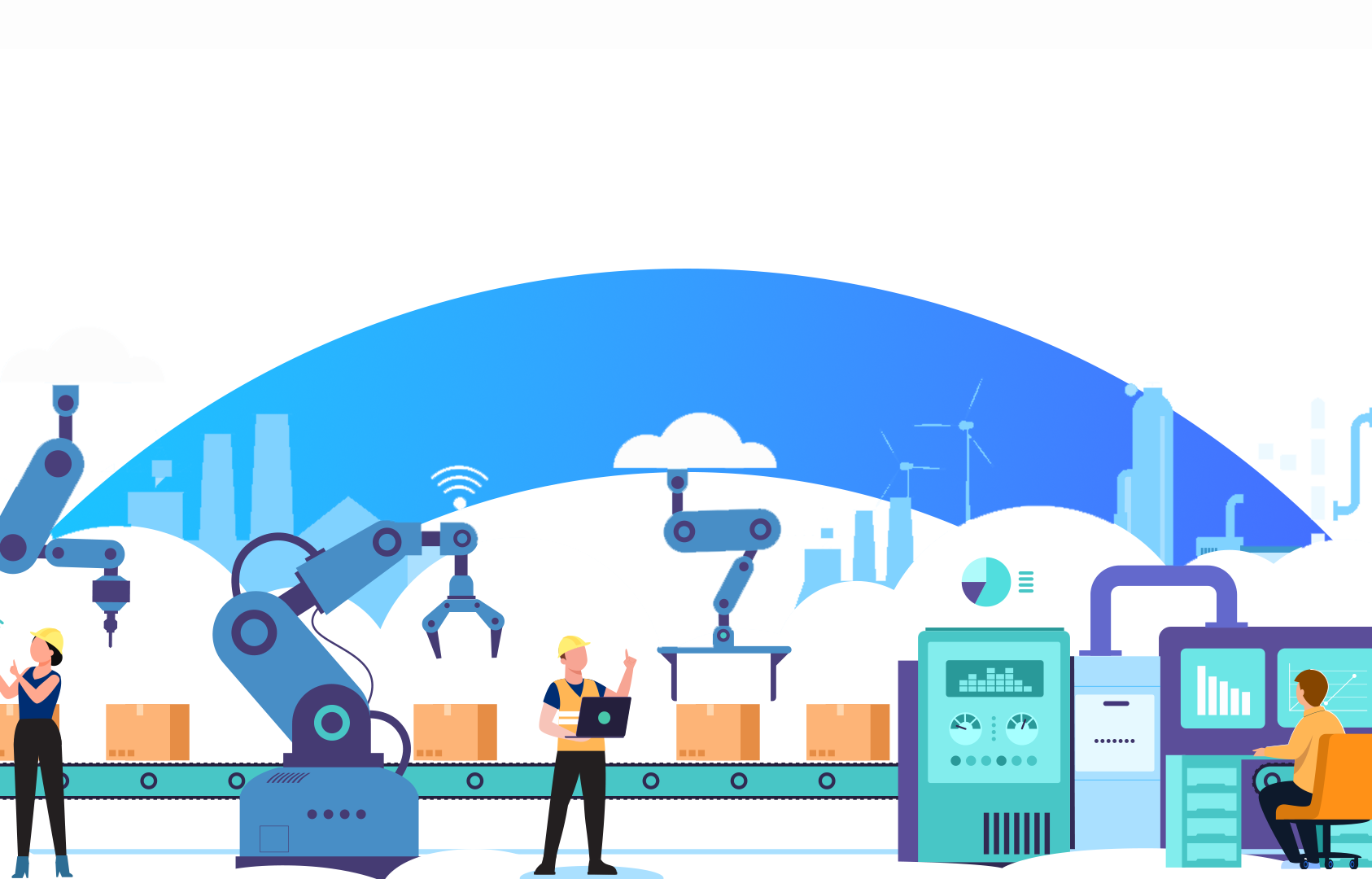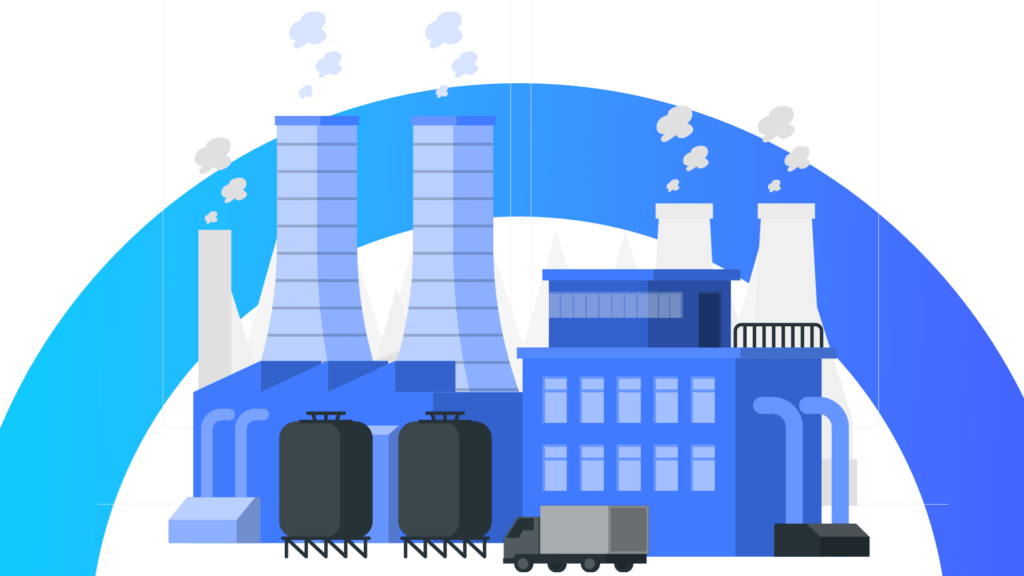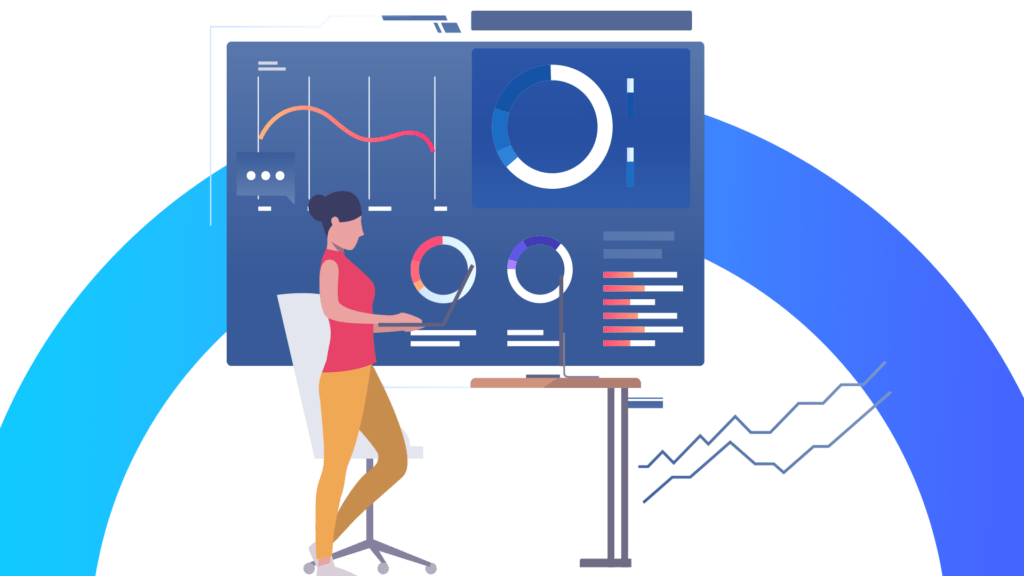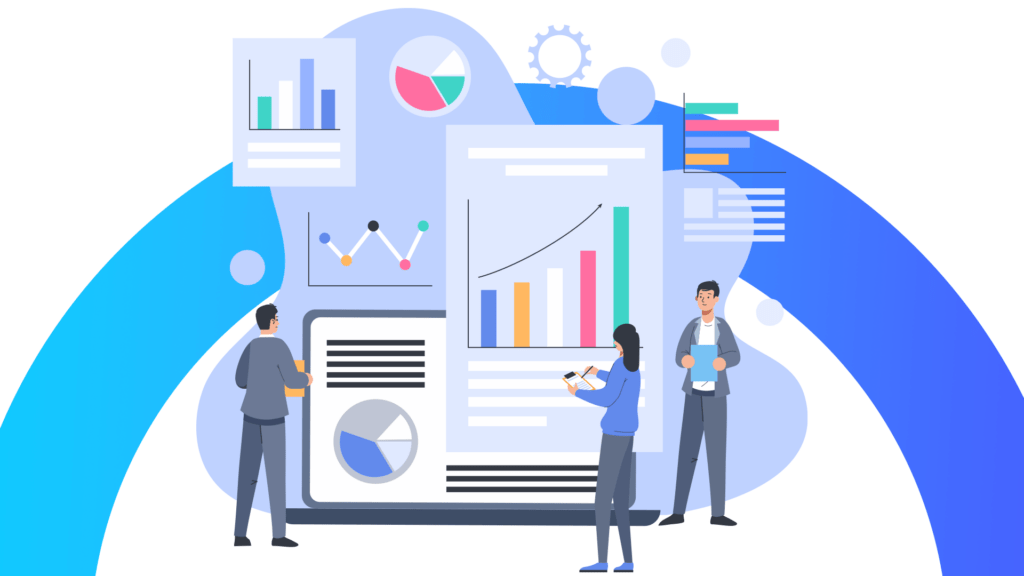In the rapidly evolving landscape of the manufacturing industry, the convergence of digital technology and industrial processes has given rise to smart factories where all the manual processes are automated to achieve maximized productivity and reach the heights of operational efficiency. This manufacturing process automation comes with the deployment of industrial IoT solutions which streamline the data sharing by putting it all into a cloud form where the decision makers not only access the data but can utilize it to achieve wonders in optimizing production processes. This article delves into the maximum detail of IIoT solutions for industry and its implications in the manufacturing sector.
What are industrial IoT solutions?
Industrial IoT solutions refer to the integration of IoT solutions into industrial settings. In essence, it is an interconnected network of machines and devices, where data is being collected, exchanged, and analyzed to achieve enhanced productivity, efficiency, reliability, and quality of industrial operations.
IoT vs. IIoT
Strategically deploying sensors, IoT gateways, or edge systems with machines forms the Industrial Internet of Things (IIoT) system. This setup centrally collects data from all machines, converting it into actionable insights to maximize utility.
The Internet of Things (IoT) involves wired or wireless interconnectivity of routine devices like smartphones, air conditioners, and virtual assistants. Essentially, IoT enables seamless communication between everyday devices or integrated systems by connecting them via the Internet. A prime example is a smart house, automating temperature, lighting, and door locks without manual intervention.
Equipment involved in implementation of IIoT solutions
The Industrial Internet of Things utilizes the following equipment to gather raw data and convert it into actionable insights.
- Sensors
Sensors are integrated into machinery which takes data from it to provide new information extracted from that data which can be accessed externally anytime. It helps in detecting any faults or irregularities aiding in reduced downtime and quality control.
- Edge devices
They control the flow of data at the boundary between two networks which are used to monitor and control the machinery. These devices take the instructions from the end user and in return provide them with the information regarding it. It collects stores and processes data closer to endpoints to make the most efficient use of network resources.
- IoT gateways
IoT gateways, serving as centralized hubs for IoT devices, come into play when a particular edge device or sensor has limited computing or storage. These gateways connect these devices to a cloud, a centralized space where the end-user stores, manages, and accesses all the data.
Industrial IoT application in manufacturing
Manufacturing monitoring systems, implemented in the industry for smart manufacturing, leverage sensors, and other connected devices. Collecting data from the machines, these systems further analyze and process it using machine learning algorithms, providing detailed insights into the performance of the plant. This implementation of industrial IoT-based solutions can do a marvelous job in the following aspects.
- Predictive maintenance
The real-time data collected from IoT industry solutions such as sensors and other devices can predict defects in machinery. These real-time insights enable the manufacturers to remain updated on their assets’ health and take preventive measures even before any issue occurs. This not only prevents any unexpected downtime but also enhances the overall machine runtime and helps in achieving maximum productivity. Let’s consider the example of PathAdvice – an IIoT application that monitors the performance of gensets and prevents downtimes by addressing potential issues that might occur in the future.
- Remote monitoring and control
Manufacturers and decision-makers are connected to the remote plant equipment from a central location via connected devices. This enables them to remain updated about overall operations and with these smart devices they can make changes and control the operations from anywhere at any time, allowing for a greater degree of control.
- Fleet and asset-tracking solutions
The Industrial Internet of Things allows real-time monitoring and management of vehicles, equipment, and products. Decision-makers access insightful information, identifying unusual activity and potential damage. Fintech Fuel illustrates an IIoT-based solution, keeping decision-makers informed about fleet movements and fuel levels, preventing theft, and ensuring asset security.
- Energy management
Manufacturers deploy industry IoT solutions to assess energy consumption in a plant and update real-time information about energy utilization. This insight enables manufacturers to stay updated on key trends in energy usage and helps them optimize energy consumption for environmentally friendly production and reduced costs.
- Data democratization
Information sharing within an enterprise has become more crucial than ever for the production sector. Manufacturers have been working in silos which reduce the overall efficiency of the operations. So, IoT devices in industries break down data silos, updating all data in real-time. Decision-makers gain remote access and actionable insights. A standardized and centralized data hub enables experts to remain updated, responding to anomalies and resolving issues quickly.
- Security
The industrial IoT networks are susceptible to cybersecurity threats. In such cases, machine learning algorithms detect abnormal patterns in network traffic. They respond timely, enhancing overall security in industrial environments.
A more connected, intelligent, and responsive manufacturing with industrial IoT solutions
In conclusion, IIoT in manufacturing is expansive, and transformative, offering unprecedented opportunities for innovation, efficiency, and growth. From real-time monitoring to predictive maintenance, industrial IoT paves the way for a more connected, intelligent, and responsive manufacturing ecosystem.
The future of smart manufacturing is undeniably dependent on IIoT. Connectivity isn’t just a feature but a driving force towards a smarter, agile, secure, and sustainable future. Explore the potential of Industrial IoT with OmniConnect™. It’s a solution that bridges the IT/OT divide into a single IoT platform, driving success and innovation.




